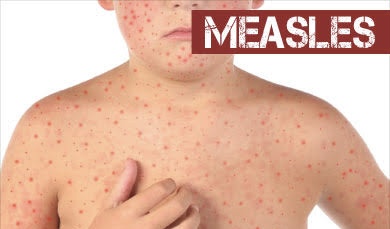As the first light of dawn crept into the room, a young warrior, AuroraBlaze, lay motionless, her body besieged by the fiery invader, Measles. The once vibrant and radiant child was now shrouded in a blanket of red spots, her eyes sunken, and her spirit wavering. Yet, within the depths of her soul, a spark remained, refusing to be extinguished. It was the ember of resilience, the flame of hope, that flickered with every labored breath.
As the days passed, AuroraBlaze’s determination kindled into a blaze, illuminating the dark path ahead. With each struggle, she rose stronger, her immune system a raging inferno, consuming the enemy that sought to vanquish her. The measles may have ravaged her body, but it could not conquer her spirit. And so, AuroraBlaze emerged, scarred but unbroken, her radiance rekindled, a beacon of hope in the face of adversity. Her story became a testament to the unyielding human spirit, a reminder that even in the darkest moments, the light of resilience and hope can ignite a blaze that burns bright enough to vanquish any foe.
What is measles?
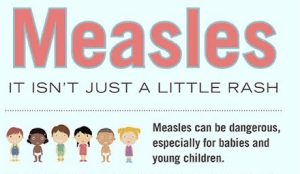
Measles (rubeola) is a viral disease that causes fever and a rash. It’s highly contagious and spreads through the air when a person with measles talks, coughs or sneezes. There isn’t a medical treatment for measles — you have to let the virus run its course. The best protection against measles is to receive the measles vaccine.
Measles is a viral disease caused by the morbillivirus
– The virus is highly contagious and airborne
– It spreads through the air when someone talks, coughs, sneezes or breathes
– The virus can remain in the air for up to two hours after the infected person has left the room
– The virus can also survive on surfaces for several hours
Does anyone still get measles?
Anyone who hasn’t received the measles vaccination can get measles. Before the measles vaccine was available, almost everyone got measles as a child. If you’ve had measles or were vaccinated against measles, you’re probably immune.
Symptoms
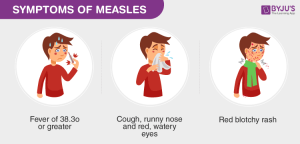
1. Fever: High temperature, usually over 104°F (40°C)
2. Cough: Dry, hacking cough
3. Runny nose: Clear, watery discharge
4. Red, watery eyes: Conjunctivitis (inflammation of the eye lining)
5. Small white spots: Koplik spots, inside the mouth
6. Red, blotchy rash: Spreads from head to toe, often starting on the face
7. Body aches: Generalized muscle and joint pain
8. Headache: Severe, often accompanied by sensitivity to light
9. Sore throat: Painful swallowing
10. Fatigue: Extreme tiredness and weakness.
Measles can be prevented through:
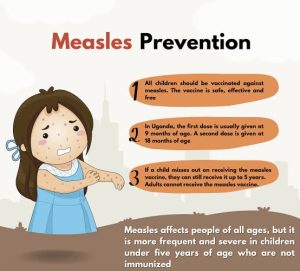
1. Vaccination: Getting vaccinated with the measles, mumps, and rubella (MMR) vaccine is the most effective way to prevent measles. Two doses of MMR vaccine are recommended, one at 12-15 months of age and a second dose at 4-6 years of age.
2. Herd Immunity: When a sufficient percentage of a population is immunized, it helps prevent the spread of measles and protects those who are not vaccinated, such as individuals with weakened immune systems.
3. Good Hygiene: Practicing good hygiene, such as washing hands frequently, covering the mouth and nose when coughing or sneezing, and avoiding close contact with anyone who has measles.
4. Travel Precautions: Getting vaccinated before traveling to areas where measles is common, and taking precautions to avoid exposure to measles.
5. Boosters: Getting booster shots as recommended by your healthcare provider to maintain immunity.
Complications

– Ear infections: This occurs in about 10% of children with measles.
– Diarrhea: Less than 10% of people with measles experience diarrhea.
– Pneumonia: This is the most common cause of death from measles in young children, affecting up to 1 in 20 children.
– Encephalitis: 1 in 1,000 children with measles develop encephalitis, which can lead to convulsions and leave the child deaf or with an intellectual disability.
– Death: Nearly 1 to 3 in 1,000 children who become infected with measles will die from respiratory and neurological complications.
– Blindness: This is one of the extreme complications of measles.
– Severe diarrhea and dehydration
– Severe breathing problems
– If a woman catches measles during pregnancy, it can cause her baby to be born prematurely with a low birth weight.
Treatments
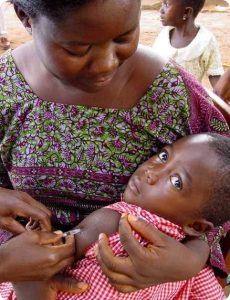
Measles is a viral infection, so there is no specific treatment for it. However, some measures can be taken to manage its symptoms, such as:
– Resting and avoiding busy activities
– Drinking plenty of fluids, such as water, fruit juice and herbal tea
– Taking fever reducers such as acetaminophen or ibuprofen
– Using a humidifier to relieve a cough and sore throat
– Using saline nasal sprays to soothe irritation in the nose
– Wearing sunglasses or dimming the lights if bright light is irritating
– Taking vitamin A to lessen the severity of measles infection
– Antibiotics, if a bacterial infection, such as pneumonia or an ear infection, develops while infected with measles.

